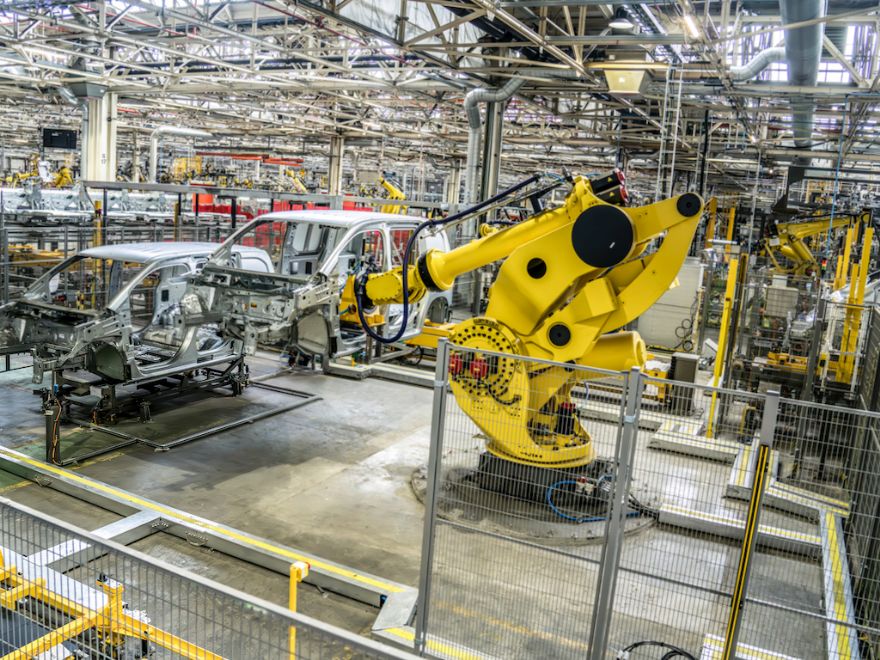 Stellantis factory in Ellesmere Port. Photo: Stellantis
Stellantis factory in Ellesmere Port. Photo: StellantisUK commercial vehicle (CV) production grew by 4% in 2024, with 125,649 vans, trucks, taxis, buses and coaches leaving factory lines, according to the latest figures published by the
Society of Motor Manufacturers and Traders (SMMT). Despite a subdued fourth quarter, output reached its highest level in 16 years – helped by a ramp up in production of new models and solid growth in the EU supporting exports.
Over the full year, production for export increased by 6.6%, reaching 82,097 units. Almost two thirds (65.3%) of output was allocated to international markets, an increase of 1.6% on the previous year, demonstrating the importance of smooth trade, notably across the Channel. The European Union (EU) accounted for 97.8% of all exports after volumes rose 10.8% to 80,291 units.
Production for the UK, meanwhile, fell by -0.8% — equivalent to 333 vehicles — with 43,552 British-built CVs making their way onto UK roads. The decline highlights the need to encourage greater uptake of new CVs – especially zero-emission models – to ensure the UK stays on track to hit its ‘net zero’ goals and support investment in British automotive manufacturing.
Mike Hawes, SMMT chief executive, said: “The best British CV manufacturing performance since 2008 is testament to the sector’s agility, and, as the global pursuit of zero-emission road transport intensifies, it must now adjust to new challenges. Anchoring automotive manufacturing in the UK will drive long-term economic growth, and that must start with creating ambitious industrial and trade strategies that deliver the competitive production base, healthy domestic market and export conditions needed to provide a return on investments.